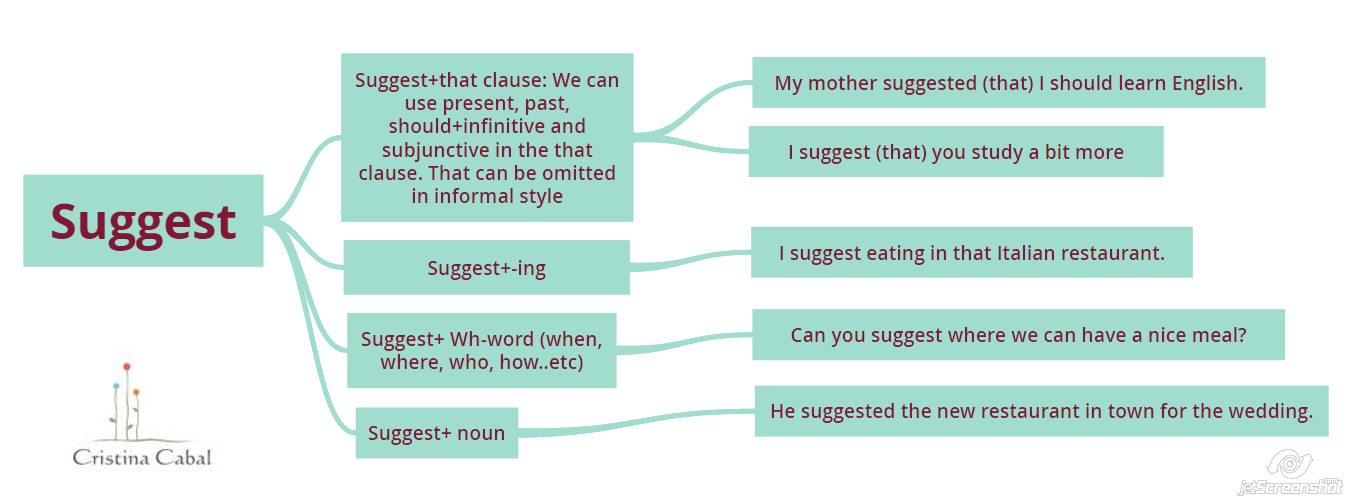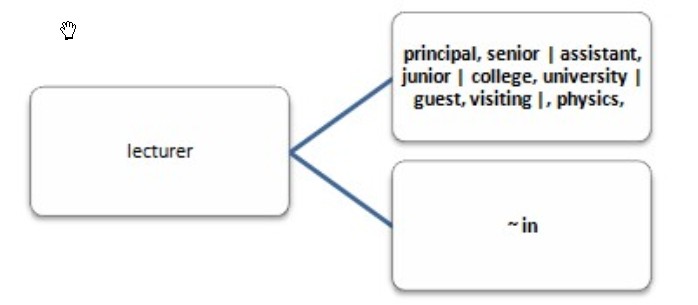Would you agree with me if I said one of the trickiest verbs in English is ” suggest“?
This is one of the most common mistakes students make with this verb. Do you have this mistake?
My mother suggested me to learn English
The sentence above is wrong because “suggest” is not followed by object+infinitive.
Below you’ll find some of the most common structures with “suggest”:

- Suggest+that clause: We can use present, past, should+infinitive and subjunctive in the that clause. That can be omitted in informal style.
My mother suggested (that) I should learn English.
I suggest (that) you study a bit more
- Suggest+-ing
I suggest eating in that Italian restaurant.
- Suggest+ Wh-word (when, where, who, how..etc)
Can you suggest where we can have a nice meal?
- Suggest+ noun
He suggested the new restaurant in town for the wedding.
If we need to mention the person who receives the suggestion, we use a to-construction.
He suggested a new restaurant to me.
He suggested me a new restaurant.
MAKING SUGGESTIONS
And now that we are on the subject, do you know how to make suggestions in English?
Click “play” on the interactive mind map below to study the different ways we can suggest in English and then see the video to do some practice.
Mapa Mental creado con GoConqr por cristina.cabal




